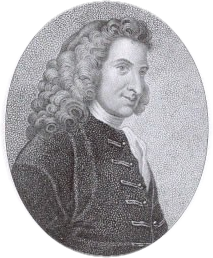The History of Tom Jones, a Foundling
Henry Fielding frasi celebri
The History of Tom Jones, a Foundling
The History of Tom Jones, a Foundling
The History of Tom Jones, a Foundling
“Quasi ogni dottore ha la sua malattia favorita.”
da Tom Jones, traduzione di Decio Pettoello, Feltrinelli, 2003
Henry Fielding: Frasi in inglese
“Depend on me; never fear your enemies. I'll warrant we make more noise than they.”
Eurydice Hissed : or A Word to the Wise (1736) in The Works of Henry Fielding (1775) in Twelve Volumes, Vol. IV, p. 222
Jonathan Wild (1743, rev. 1754), Book III, ch. 7
Book XI, Ch. 4
The History of Tom Jones (1749)
Act III, sc. vii
The Miser (1733)
The Journal of a Voyage to Lisbon (1754), Introduction
“Thwackum was for doing justice, and leaving mercy to heaven.”
Book III, Ch. 10
The History of Tom Jones (1749)
Act III, sc. xii
The Miser (1733)
“Much may be said on both sides.”
Spectator, No. 122.
Bartlett's Familiar Quotations, 10th ed. (1919)
“Hairbreadth missings of happiness look like the insults of Fortune.”
Book XIII, Ch. 2
The History of Tom Jones (1749)
“Life may as properly be called an art as any other.”
Book I, Ch. 1
Amelia (1751)
Book I, Chapter 2
The History of Tom Jones (1749)
“It is a trite but true observation, that examples work more forcibly on the mind than precepts.”
Book I, Ch. 1
Joseph Andrews (1742)
“It hath been often said, that it is not death, but dying which is terrible.”
Book III, Ch. 4
Amelia (1751)
“Men who pay for what they eat will insist on gratifying their palates”
Book I, Chapter 1
The History of Tom Jones (1749)
“When I'm not thanked at all, I'm thanked enough;
I've done my duty, and I've done no more.”
Origine: Tom Thumb the Great (1730), Act I, sc. iii
The Covent Garden Tragedy (1732), Act V, scene 1
“These are called the pious frauds of friendship.”
Book VI, Ch. 6
Amelia (1751)
